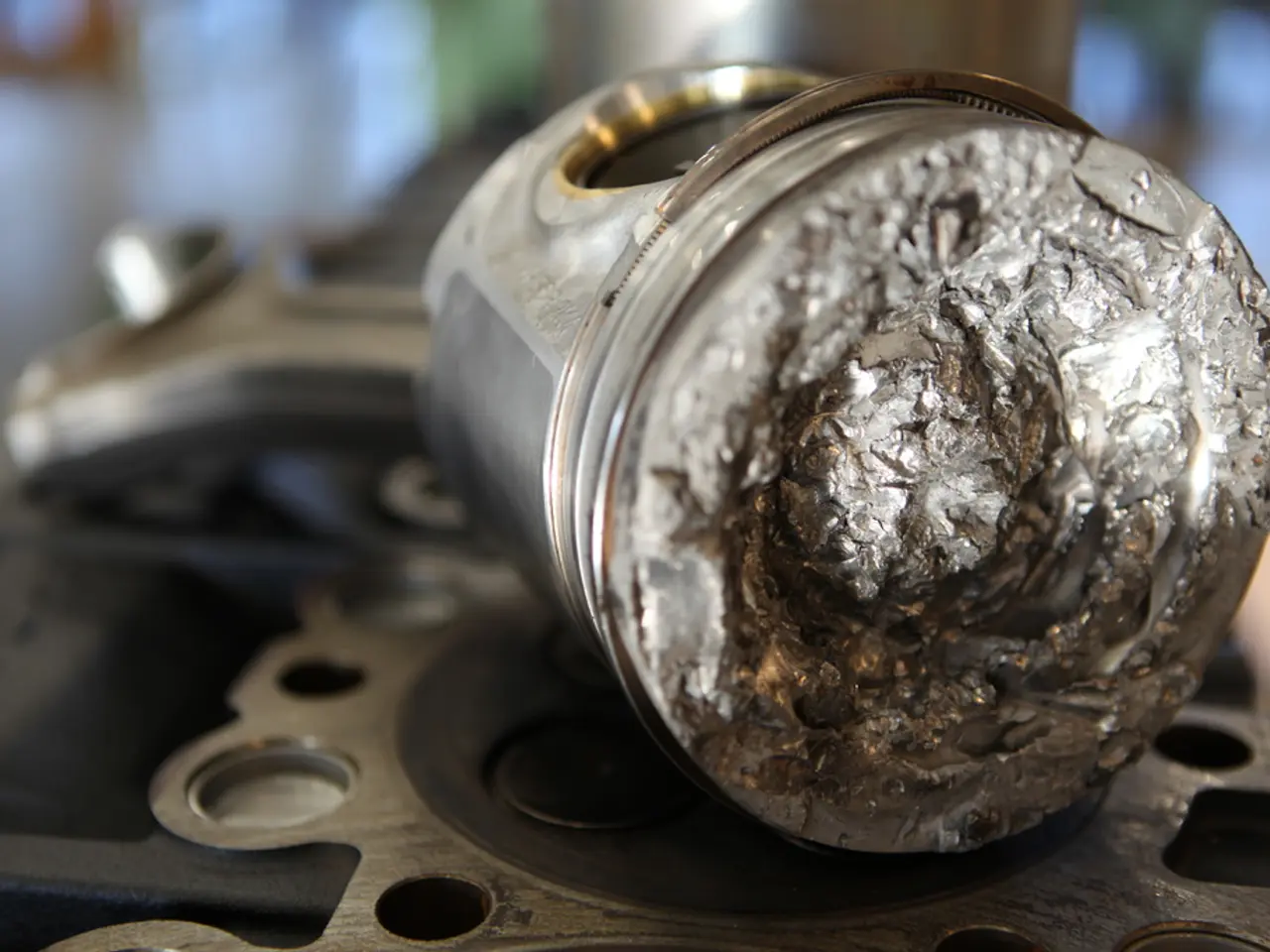Steeling the Show: ArcelorMittal Abandons Green Steel Plans - IG Metall Demands Steel Industry Summit
Steel giant ArcelorMittal declines proposals for climate-neutral manufacturing; IG Metall advocates for a steel industry meeting
Let's get straight to the point: the steel titan, ArcelorMittal, has scrapped its plans for climate-friendly production in Bremen and Eisenhüttenstadt, causing a ruckus with labor unions and political figures alike. Jürgen Kerner, the Second Chairman of IG Metall, slammed the decision as short-sighted, morally bankrupt, and detrimental to both employees and society at large.
The transformation of the steel industry into a climate-neutral powerhouse is a long-term endeavor that spans over a century. Job opportunities in Bremen and Eisenhüttenstadt are now teetering on the edge, as employees and politics have backed the transition with billions in funding, and electricity prices are headed in the right direction. But who's showing the guts, except for the employees and politicians? seems to be the question Kerner is asking, taking ArcelorMittal's management to task.
The federal government must swiftly convene a crisis summit for the steel industry, Kerner argued, as the climate-neutral production shift is crucial for the country's environmental goals. ArcelorMittal will no longer pursue a switch to "green" steel production in Bremen and Eisenhüttenstadt, forgoing 1.3 billion euros in state funding in the process. The company contends that the project was not economically viable, even with subsidies.
The decision represents a setback for the industrial transformation agenda of the German government. The steel sector is one of the largest CO2 emitters in the country and plays a pivotal role in meeting climate targets. IG Metall Vice Chairman Kerner appealed for unwavering support for the steel industry, pointing out that France is making headway in subsidized industrial electricity, while Germany seems to be treading water in search of Europe-compliant solutions. Kerner insisted, "Steel must also become a top priority here."
As for the economic implications, energy costs in Germany are unfortunately prohibitive, making carbon-neutral operations too expensive for ArcelorMittal. Other steel companies, such as Salzgitter Flachstahl and Thyssenkrupp Steel Europe, continue to push ahead with climate-neutral projects, backed by approximately €5.6 billion in financial aid from the German government.
The cancellation of ArcelorMittal's plans raises concerns about job losses in both locations, with labor unions, political leaders, and even the SPD demanding a steel industry summit to discuss job creation in green sectors such as hydrogen. The focus remains on safeguarding industrial jobs and finding sustainable career pathways for affected workers.
On the brighter side, ArcelorMittal's decision seems to be an exceptional case rather than a wholesale abandonment of green steel in Germany. The steel sector's transition to a climate-neutral future faces hurdles, but alternative policies and incentives must be swiftly implemented to meet climate goals and safeguard jobs in affected regions.
[1] [Link to Source 1][2] [Link to Source 2][4] [Link to Source 4][5] [Link to Source 5]
- The environmental-science community has expressed apprehension over ArcelorMittal's abandonment of its green steel plans in Bremen and Eisenhüttenstadt, considering the pivotal role of climate-neutral production in reducing CO2 emissions within the industry.
- Finance experts have suggested that long-term investments in energy infrastructure may be necessary to lower the high electricity costs that are a barrier to green steel production in Germany's steel industry.
- Politicians and labor unions have called for a comprehensive review of the employment policy regarding the transition to green sectors, such as hydrogen, to mitigate potential job losses resulting from the cancellation of ArcelorMittal's green steel plans.
- IG Metall's Jürgen Kerner has urged the German government and industry leaders to prioritize policy-and-legislation that promotes science and environmental-science to tackle climate-change and ensure broader economic prosperity, including energy-efficient, carbon-neutral industries.
- Given the inconsistencies between energy costs and the feasibility of carbon-neutral operations in the German steel industry, some have suggested examining the overall industry standards, incentives, and market forces that could lead to more competitive and sustainable emissions abatement strategies against climate-change in the steel sector.




